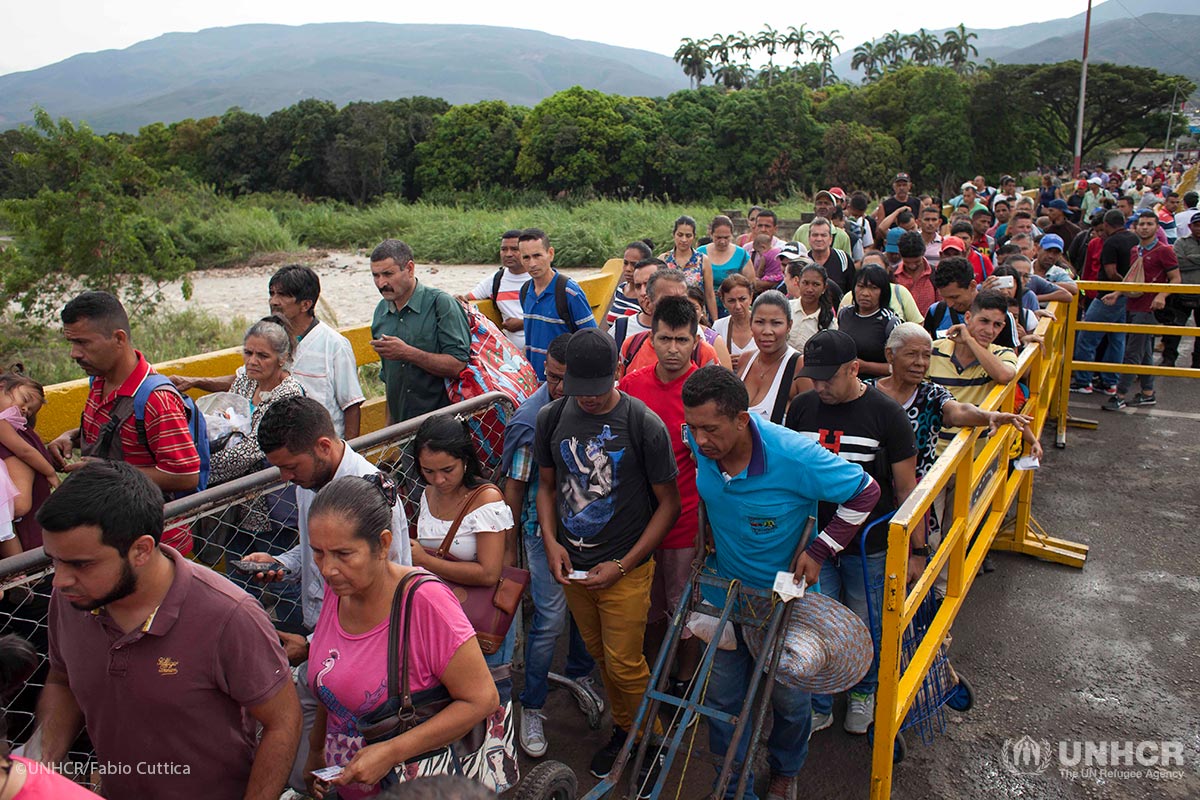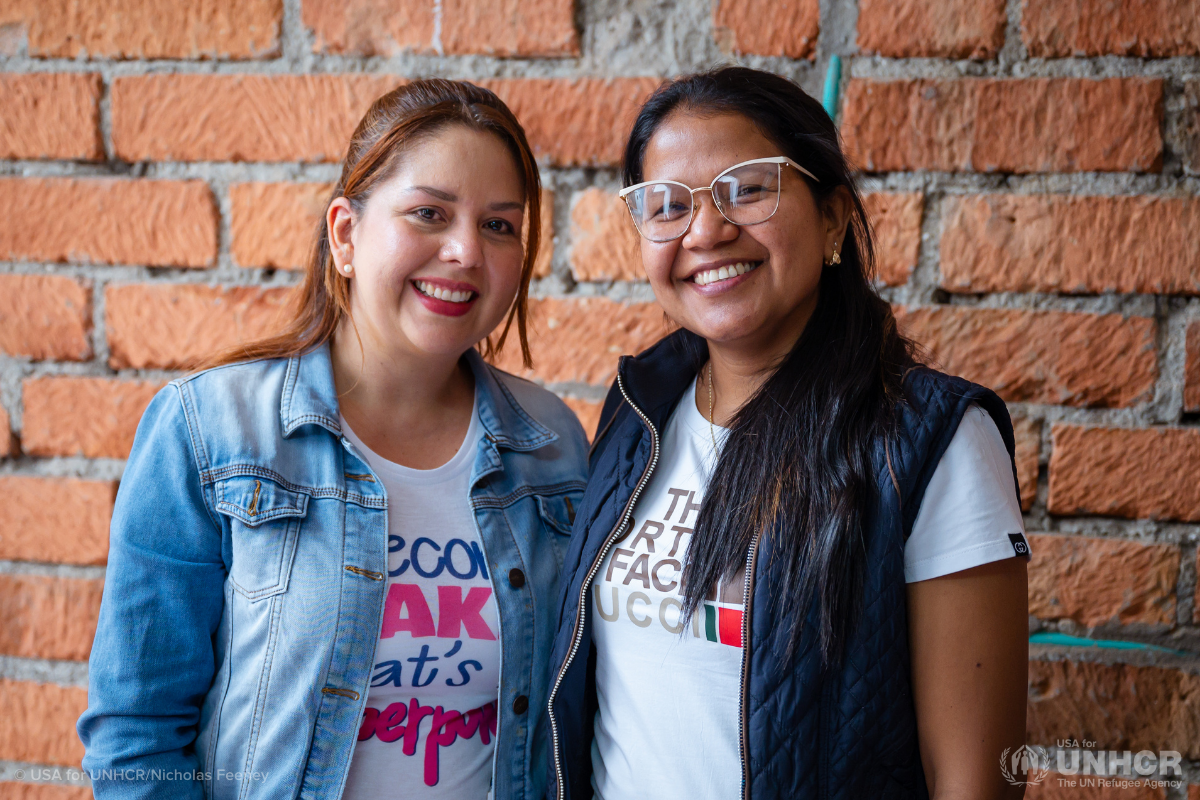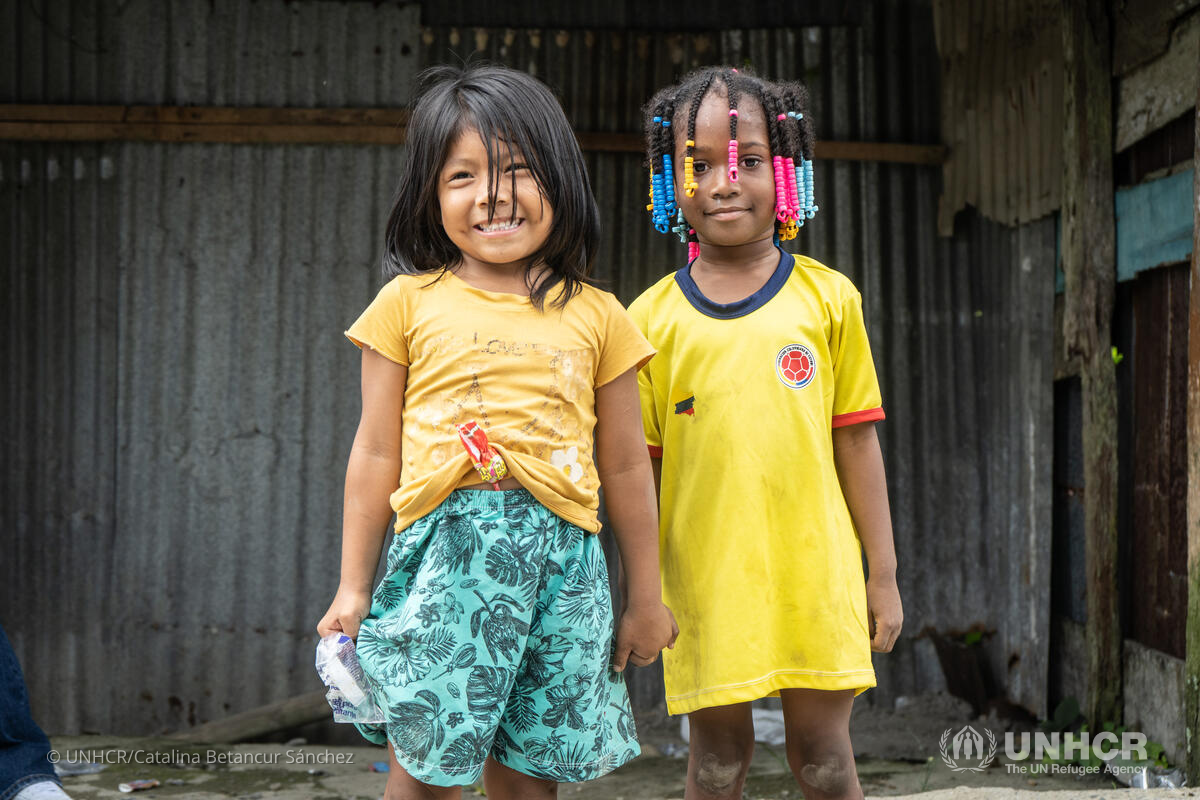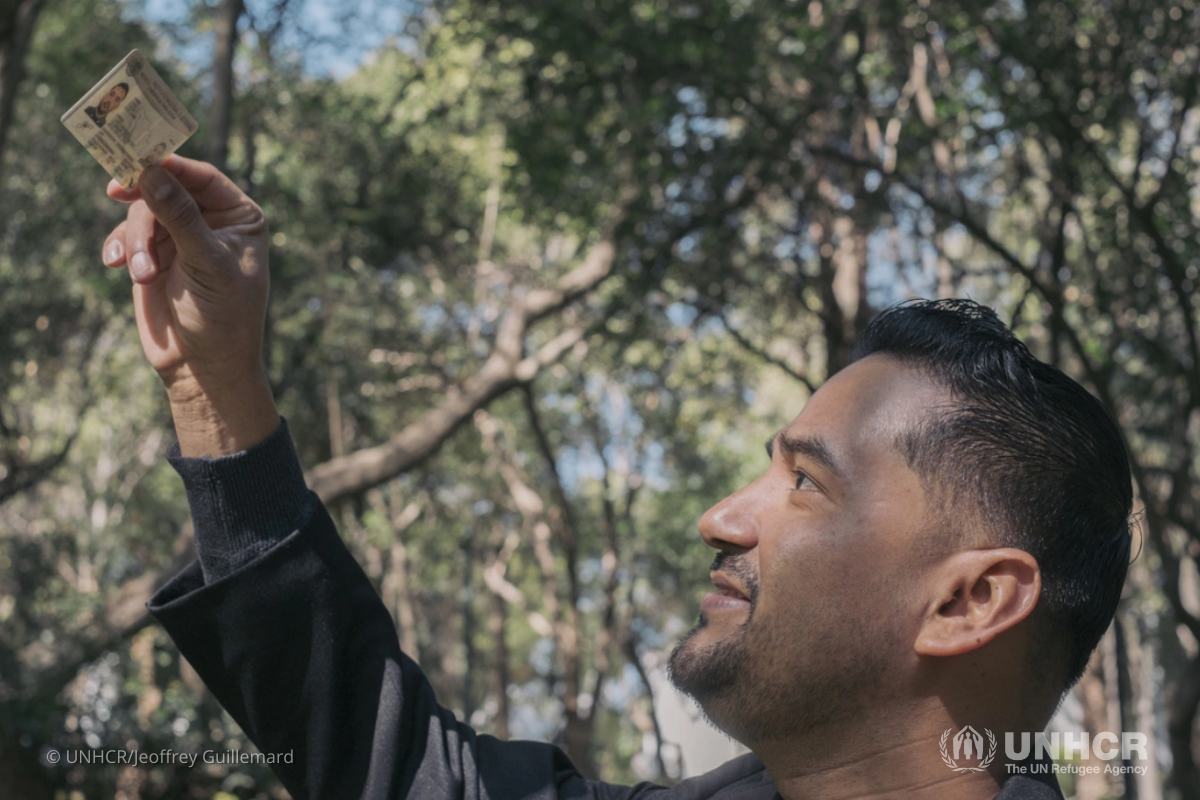UNHCR to intensify aid to Venezuelans in Colombia

Over 4,000 Venezuelans enter Colombia every day looking to stay or continue their journey southwards. Thousands do it on foot, crossing Simón Bolívar International Bridge. Beneath an unforgiving sun, they drag worn-down suitcases, carry giant sacks on their shoulders or cradle young children in their arms.
With their country facing a deteriorating situation, many are in need of international protection.
“The constant flow of Venezuelans entering Colombia generates monumental challenges to address their humanitarian needs,” said UN High Commissioner for Refugees Filippo Grandi while visiting Villa del Rosario on Sunday. “UNHCR is committed to intensifying our presence and help.”
Grandi is visiting Colombia and other Latin American countries to assess the needs of Venezuelan refugees and migrants, as well as the countries hosting them, and to discuss regional approaches to address the increasing outflow with more international support.
Nearly two million Venezuelans have left their country since 2015. About one million are now in Colombia, where the government is seeking to ensure they can work legally and access social services, through the issuance of a special permit. Nearly 400,000 Venezuelans have obtained permits to legally work and access social services in the country, according to the Colombian government.
“Venezuelans without access to a legal status are particularly vulnerable to exploitation, trafficking and discrimination,” Grandi said.
“The constant flow of Venezuelans entering Colombia generates monumental challenges to address their humanitarian needs.”
Venezuelans say they are compelled to leave for multiple reasons. They include insecurity and violence, lack of access to food, medicine and essential services, as well as a loss of income as a result of the current political and a socio-economic situation.
The North of Santander region is the busiest border crossing in Colombia, accounting for 75 percent of all entries by land. National and local authorities are working with UNHCR, the UN Refugee Agency, the International Organization for Migration and other entities in the area to better address the most basic and immediate needs of those arriving, including Venezuelan refugees and migrants and 300,000 Colombian returnees.
“I am impressed by Colombia’s efforts to document, feed, shelter and care for thousands of Venezuelans arriving every day,” Grandi said. “This extraordinary solidarity needs more international support.”
The first stop for many Venezuelans is the Divina Providencia community kitchen. It serves 3,000 free breakfasts and 3,000 lunches each day. Refugees and migrants start lining up as early as 6 a.m. By 11:30 am, there is rarely any food left.
The center relies on some 80 to 100 Colombian and Venezuelan volunteers. Among those Grandi met was Irene Navajo, 35, from Caracas. She explained how, after her husband lost his construction job, the family could not make ends meet on her salary as a cleaner at a health clinic. The couple crossed to Cúcuta eight months ago, leaving their four children back in Venezuela, with Irene’s mother.
“It is sad to abandon your country, but there’s nothing else we can do,” she said as she rinsed forks and spoons in a big blue plastic bucket.
Shortly after reaching Cúcuta, Irene’s two suitcases with all her belongings got stolen. She and her husband slept on the streets for two months. Then a woman told her about Divina Providencia, and the morning after, at 7 a.m. sharp, she was lining up for breakfast. She now volunteers there, cooking and washing dishes, and has been made to feel welcome.
“I feel among family,” she says. “When I get nostalgic and think about my children, I feel that my family is here too.”
Beyond food, the center also offers basic medical consultation and legal information services thanks to UNHCR’s support.
The growing number of Venezuelans has strained the region’s health care services. To boost capacity, the UN Refugee Agency supported the creation of a new health center in Villa del Rosario. It aims to provide first aid care and family planning services to some 300 people per day, including refugees, migrants and the local community.
“I lost everything I had, I arrived in a new place with empty hands. Now Venezuelans are going through the same that I went through.”
During his visit, Grandi also highlighted the solidarity of Colombians towards Venezuelans who had to leave their homes. He met with the neighbors of Las Delicias, where over 20 families of Colombians who were forcibly displaced by the armed conflict years ago are now opening their doors to Venezuelans.
This was the case of Graciela Sánchez. More than a decade ago, she fled her home in Caquetá, in eastern Colombia, and arrived in Las Delicias in 2007. She came with nothing but her two daughters. Now 39, she is hosting five Venezuelan families in her hilly plot – 18 people in total.
“I lost everything I had, I arrived in a new place with empty hands. Now Venezuelans are going through the same that I went through,” Graciela told Grandi when he visited her home. “We don’t know what may happen tomorrow. It might be us too.”
Next to Simón Bolívar International Bridge, on the Colombian side of the border, hundreds of Venezuelans wait in line to get their passports stamped. For many, their official entry into Colombia inks the first step in a long journey towards other parts of the country, or even Ecuador or Peru, where they are looking for a better future for them and their families.
In the coming days, the High Commissioner will follow the flow of Venezuelans in Argentina, Peru and Ecuador to assess the regional implications of their humanitarian needs and to discuss with the hosting countries best approaches for a coherent response.
Originally reported by Marta Martinez, UNHCR


